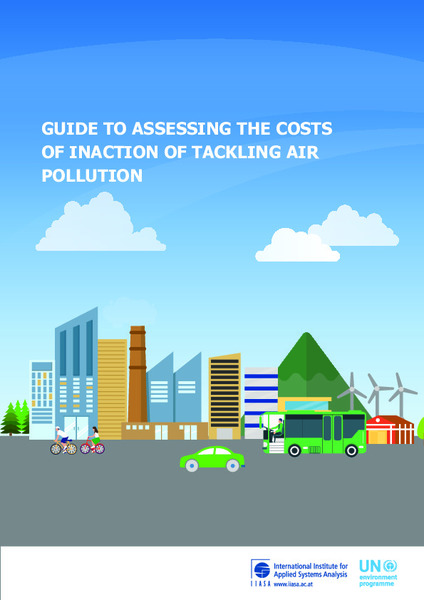Guide to Assessing the Costs of Inaction of Tackling Air Pollution

Date
2023-05Author
International Institute for Applied Systems Analysis
United Nations Environment Programme
Citation Tool
Bibliographic Managers
RT Generic T1 Guide to Assessing the Costs of Inaction of Tackling Air Pollution A1 International Institute for Applied Systems Analysis, United Nations Environment Programme YR 2023-05 LK https://wedocs.unep.org/20.500.11822/43195 PB AB TY - GEN T1 - Guide to Assessing the Costs of Inaction of Tackling Air Pollution AU - International Institute for Applied Systems Analysis, United Nations Environment Programme Y1 - 2023-05 UR - https://wedocs.unep.org/20.500.11822/43195 PB - AB - @misc{20.500.11822_43195 author = {International Institute for Applied Systems Analysis, United Nations Environment Programme}, title = {Guide to Assessing the Costs of Inaction of Tackling Air Pollution}, year = {2023-05}, abstract = {}, url = {https://wedocs.unep.org/20.500.11822/43195} } @misc{20.500.11822_43195 author = {International Institute for Applied Systems Analysis, United Nations Environment Programme}, title = {Guide to Assessing the Costs of Inaction of Tackling Air Pollution}, year = {2023-05}, abstract = {}, url = {https://wedocs.unep.org/20.500.11822/43195} } TY - GEN T1 - Guide to Assessing the Costs of Inaction of Tackling Air Pollution AU - International Institute for Applied Systems AnalysisInternational Institute for Applied Systems Analysis, United Nations Environment Programme UR - https://wedocs.unep.org/20.500.11822/43195 PB - AB -View/Open
Item Statistics
Display item statisticsMetadata
Show full item recordDescription
This document provides up-to-date guidance to ASEAN Member States on conducting and using an assessment of the costs of inaction of tackling air pollution based on rigorous scientific methods and best available data. Such assessment would include quantification of pollutant emissions, concentrations, impacts and costs for alternative future scenarios with differential levels of air pollution. It also provides examples of good practices in the ASEAN region which should be built upon throughout the assessment process to ensure the assessment is robust and can be communicated and utilized effectively. Following these guidelines and good practices, ASEAN countries can develop and utilize cost of inaction assessments to overcome current barriers and motivate action on air pollution.
Collections
Document Viewer
To read more, scroll down below.

